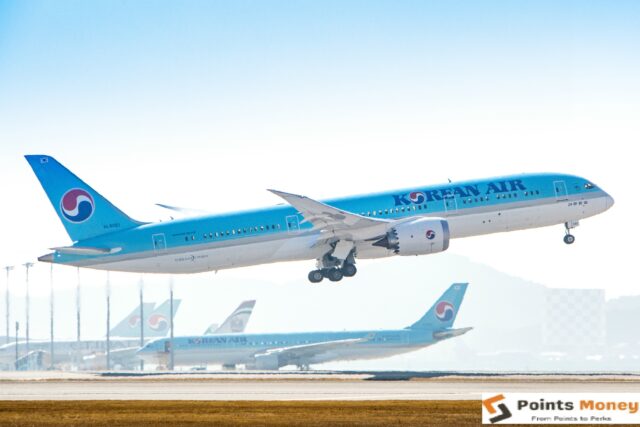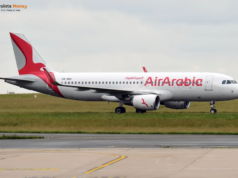Korean Air reported its financial results for the third quarter of 2024, showcasing strong revenue growth and operational performance. The airline achieved a third-quarter revenue of KRW 4.2408 trillion (USD 3.213 billion), marking a 10% year-on-year (YoY) increase. This growth highlights Korean Air’s ability to navigate challenging market conditions while optimizing its passenger and cargo operations.
In this article, we delve into Korean Air’s Q3 2024 performance, focusing on its revenue, operating profit, passenger and cargo businesses, and strategic initiatives for Q4 2024.
Key Highlights of Korean Air’s Q3 2024 Financial Results

While the revenue and operating profit showed strong YoY growth, net income experienced a decline due to external factors, which we will explore further.
Revenue Performance
Overall Revenue Growth
Korean Air experienced a 10% year-over-year growth in revenue during Q3 2024, totaling KRW 4.2408 trillion. This remarkable expansion was mainly fueled by:
- Capacity Expansion: Effective deployment of additional capacity during the summer peak season.
- Optimized Cargo Operations: Enhanced focus on e-commerce opportunities, particularly in China.
Passenger Business: Steady Growth and Strategic Focus
Passenger Revenue Breakdown
The passenger segment contributed KRW 2.6173 trillion to Korean Air’s Q3 2024 revenue, reflecting a 2% YoY increase.
Key Drivers:
- Yield Management: Korean Air successfully managed its yield by strategically deploying capacity on high-demand routes during peak periods, including summer vacations and the Chuseok holiday.
- Premium Class Focus: Proactive measures to attract premium-class passengers, such as marketing campaigns and enhanced inflight services, supported revenue growth.
- Strategic Route Deployment: Increased flights on popular routes ensured efficient utilization of resources and maximized load factors.
Seasonal Demand Management
The airline capitalized on the high travel demand during the summer and Chuseok holidays by offering competitive pricing and expanding flight options on high-traffic routes, such as:
- Trans-Pacific routes.
- Intra-Asia travel corridors.
Despite global economic uncertainties, the passenger business demonstrated resilience through strategic planning and agile market responses.
Cargo Business: Strong Performance Amid Challenges
Cargo Revenue Breakdown
The cargo division reported a revenue of KRW 1.1198 trillion in Q3 2024, marking a strong year-over-year growth of 22%.
Growth Factors:
- E-Commerce Surge: The ongoing expansion of China’s e-commerce sector provided significant revenue opportunities, compensating for traditional seasonal challenges.
- Market Adaptability: Korean Air’s cargo operations adapted to changing market dynamics, including shifts in demand and supply chains.
- Strategic Partnerships: Collaborations with logistics providers further strengthened the cargo business, ensuring efficient distribution and delivery.
Overcoming Seasonal Challenges
While the third quarter often poses headwinds for cargo businesses due to seasonal slowdowns, Korean Air leveraged its strong presence in Asia, particularly in China, to achieve remarkable results.
Operating Profit and Net Income Analysis
Operating Profit
Korean Air’s operating profit reached KRW 618.6 billion in Q3 2024, a 19% YoY increase compared to KRW 520.3 billion in Q3 2023. The improved operating profit reflects:
- Increased revenue from both passenger and cargo operations.
- Effective cost management and resource optimization.
Net Income Decline
Despite the growth in revenue and operating profit, net income declined by 35% YoY, from KRW 424.5 billion in Q3 2023 to KRW 276.6 billion in Q3 2024.
Contributing Factors:
- Currency Fluctuations: Exchange rate volatility impacted profitability.
- Rising Costs: Increased operational costs, such as fuel and labor expenses, added pressure to the bottom line.
Strategic Outlook for Q4 2024
Korean Air is focusing on several strategic initiatives to maintain momentum in the final quarter of the year:
Passenger Business
- Southeast Asian Network Expansion: The airline plans to add more routes and flights in Southeast Asia to capture winter travel demand.
- Revenue Diversification: Efforts to attract a wider customer base, including budget-conscious travelers and premium-class passengers, will support steady revenue growth.
Cargo Business
Market Agility: The cargo division will monitor and adapt to market dynamics, particularly the evolving U.S.-China trade relations and maritime shipping trends.
Peak Season Optimization: Korean Air aims to capitalize on the year-end peak shipping season by aligning resources with demand fluctuations.
Industry Context and Competitive Landscape
Global Aviation Trends
The global aviation industry in 2024 faced challenges, including fluctuating fuel prices and geopolitical uncertainties. Despite these factors, Korean Air outperformed many competitors by leveraging its strong brand presence and strategic planning.
Korean Air’s Competitive Edge
- Market Leadership in Asia: As a major player in the Asia Pacific region, Korean Air continues to lead in both passenger and cargo services.
- Fleet Modernization: The airline’s investment in fuel efficient aircraft has enhanced its operational efficiency.
- Customer Centric Approach: Efforts to improve customer experience through personalized services and advanced technology have boosted loyalty and revenue.
Key Takeaways
Korean Air’s Q3 2024 results underscore its ability to navigate market challenges and capitalize on growth opportunities. Highlights include:
- A 10% YoY increase in total revenue, driven by both passenger and cargo operations.
- Strong performance in the cargo segment, with a 22% YoY revenue increase.
- Strategic initiatives in the passenger business, including yield management and premium passenger focus.
- Proactive measures to strengthen its market position in Q4 2024 through network expansion and peak season optimization.
Conclusion
Korean Air’s Q3 2024 financial results reflect the airline’s resilience and adaptability in a dynamic aviation market. With a focus on strategic planning and customer-centric approaches, the airline continues to strengthen its position as a global aviation leader.
As Korean Air looks ahead to Q4 2024, its commitment to innovation and market responsiveness is set to drive further growth and success.





